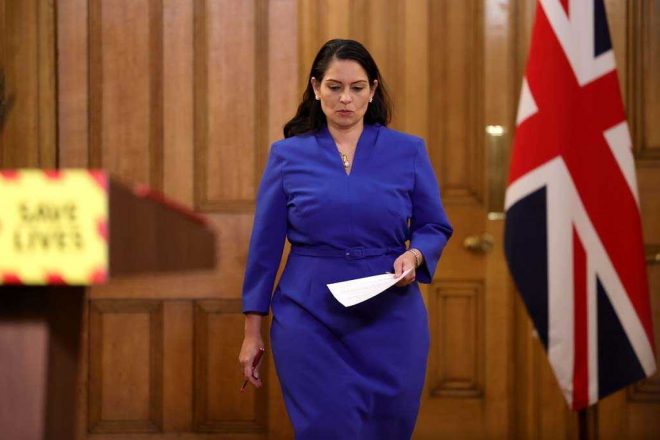GHB now classified as a 'Class B' substance
The Home Secretary announced the reclassification as part of a government initiative to "crack down on spiking"

Under a government crackdown on drink spiking, anybody detected with the "date rape" drug GHB could face up to five years in prison.
The substance was reclassified as class B rather than class C, resulting in a heavier penalty — up from the current maximum of two years.
Read this next: The Warehouse Project is offering on-site urine tests to check for spiking
The Advisory Council on the Misuse of Drugs recommended that the chemical be reclassified to be more in line with some amphetamines and ketamine two years ago.
Possession of two similar chemicals, gamma-butyrolactone (GBL) and 1,4-butanediol, carries a longer sentence (1,4-BD).
The Independent reports that Home Secretary Priti Patel said: “These drugs have been used to commit too many heinous crimes and it is right that sentences for those caught in possession of them reflect the damage they do.”
Read this next: Undercover cops is not the answer: Nightclubs need to do more to protect women
Dawn Dines, founder and head of charity Stamp Out Spiking, said: “After nearly two decades campaigning against this crime, I feel some sort of justice will be felt by the numerous victims of the disgusting crime.
“I recall young men and women breaking down, sharing their experiences. Even though it’s too late for those victims, this is going to help so many more people in the future.
“We are delighted that the home secretary is giving a clear and concise message by the reclassification of the drugs used and that there is zero tolerance of this cowardly crime in our society.”
The maximum sentence for providing and manufacturing GHB will remain at 14 years.
Read this next: GHB has been linked with brain and cognitive changes
However, despite the good intentions of the government - drug scientists and drug policy experts are sceptical of the effectiveness of this move at stopping spiking.
Adam Waugh from drug harm reduction organisation The Loop tweeted: "The evidence suggests GHB is used in drink spiking no more frequently than many over the counter drugs, prescription medications & illicit drugs. It is a 'spiking drug' by rumour, not fact. Alcohol is by far the no. 1 drug associated with sexual violence"
The evidence suggests GHB is used in drink spiking no more frequently than many over the counter drugs, prescription medications & illicit drugs. It is a “spiking drug” by rumour, not fact.
— Adam Waugh (@AdamWaughUK) April 13, 2022
Alcohol is by far the no. 1 drug associated with sexual violence https://t.co/yXHaKag3Ma https://t.co/cpeac5vTkx
Drug policy advocation group Volteface tweeted: "The reclassification of GHB will serve only to increase harms to users. This move has been taken on the basis of political expediency, not evidence-based policy-making."
The reclassification of GHB will serve only to increase harms to users.
— Volteface (@VoltefaceHub) April 14, 2022
This move has been taken on the basis of political expediency, not evidence-based policy-making. https://t.co/Es3HIycmt3
Back in November, Mixmag published an article recommending steps that clubs and venues can take to stop the prevalence of spiking, and arguing that we need to widen our scope of what spiking is. You can read more here.
Read this next: It's time for clubs to take spiking seriously
Aneesa Ahmed is Mixmag's Digital Intern, follow her on Twitter

Mixmag will use the information you provide to send you the Mixmag newsletter using Mailchimp as our marketing platform. You can change your mind at any time by clicking the unsubscribe link in the footer of any email you receive from us. By clicking sign me up you agree that we may process your information in accordance with our privacy policy. Learn more about Mailchimp's privacy practices here.

